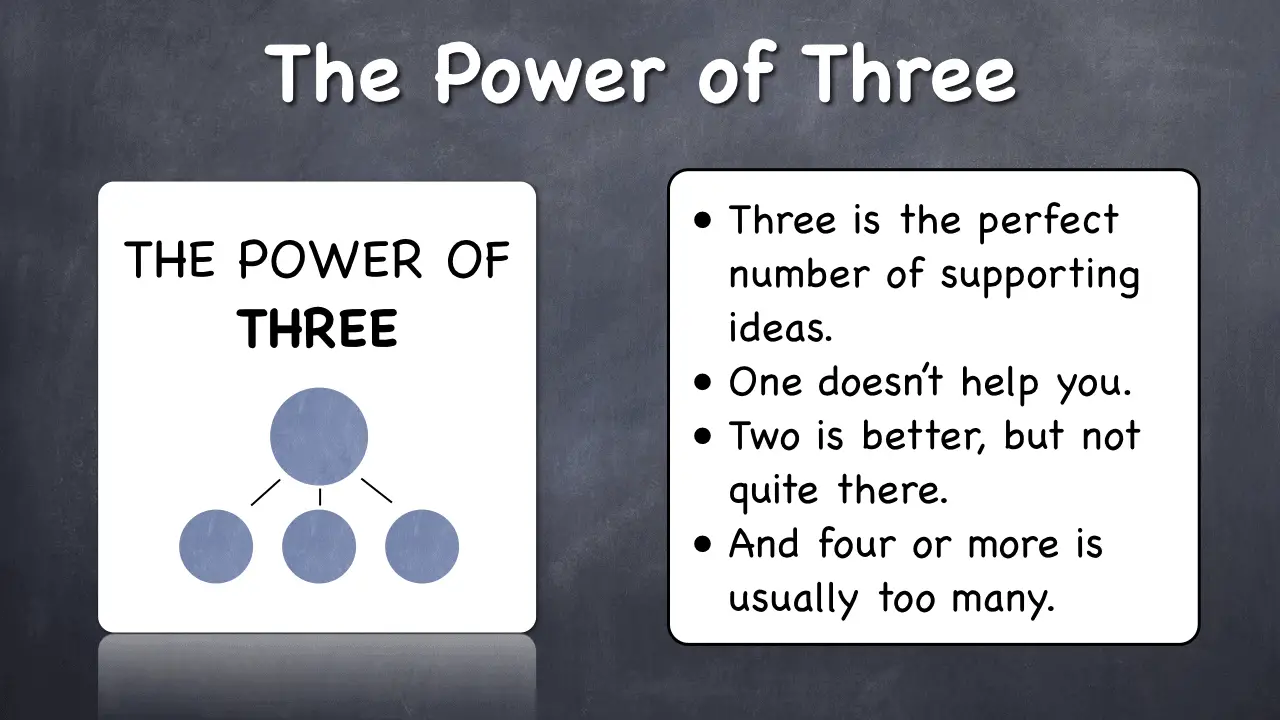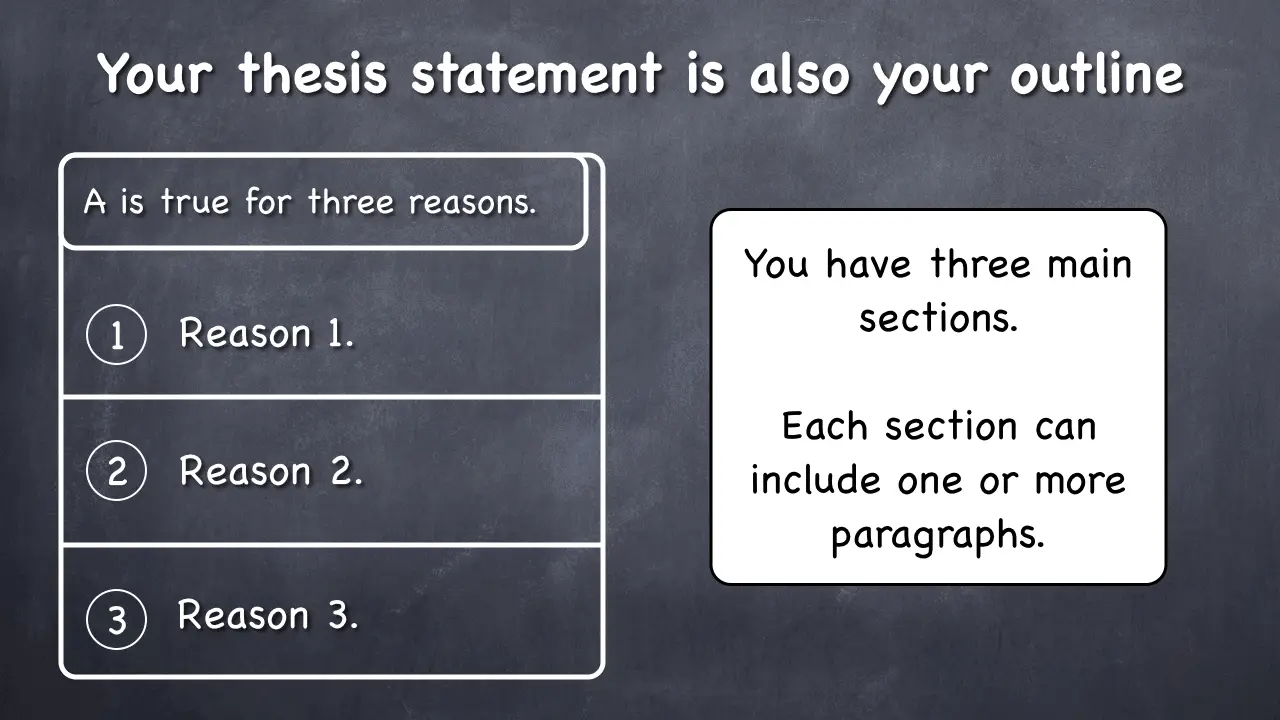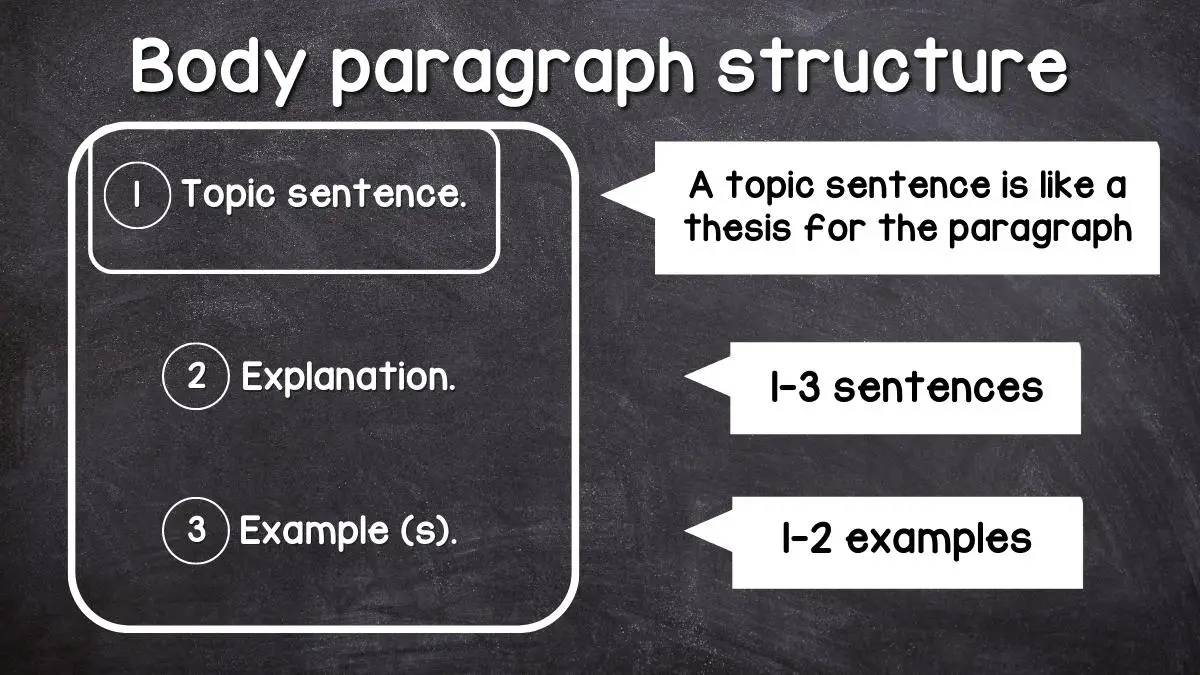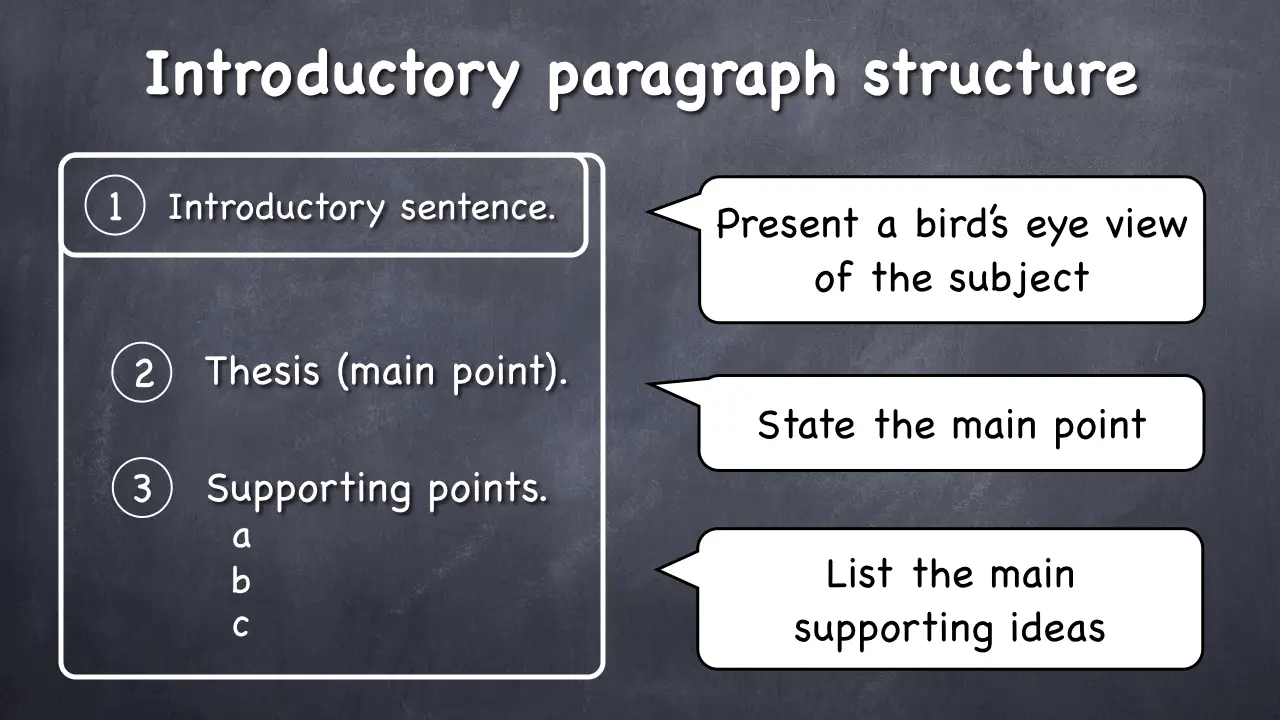

How to Write an Essay about Your Name

Are you looking for an easy and quick way to write an essay about your name? Then this is the perfect tutorial for you!
I’m Constance, and in this tutorial, I will show you how to write an essay about your name in six simple steps. I will also give you an example of such an essay as we go through the process step by step.
Let’s begin!
Step 1: Choose your main idea.
If you want to organize your thoughts and present them clearly and concisely in an essay, you need to choose your thesis — a main idea for your essay. Simply take a stand and write it down as a simple sentence.
What do you want to say about your name? Do you like your name? Do you think it’s interesting? Whatever you think of will act as your thesis .
For example, you can say, “I love my name.” Note that we kept it really simple. By doing so, we can clearly think of the next things we need for the essay.
Step 2: Think of three supporting ideas.
Trying to write an essay on only one undivided idea or thesis will get you stuck.
So, you need more than one idea. Two ideas are better than one. Three is even better. But four may be too many because you’re just writing a simple essay.
So, coming up with three supporting ideas is the best method. Why? Because three is the perfect number the brain can handle. And it works all the time! We call it the Power of Three.
So, let’s use the Power of Three to keep our ideas flowing.

The Power of Three is a three-part structure that divides your main idea into three distinct supporting points. It helps create your body paragraphs.
Let’s apply it to an essay about your name.
Ask yourself – “why do I love my name?” And write down three answers. Here are mine:
- I like its Latin origin .
- I like how my parents came up with it.
- It sounds great .
Using ideas that are too similar to each other may cause writer’s block. So, note that our three supporting points are totally different from one another.
Keep them distinct and simple to avoid running out of things to write down the line.
Step 3: Write your thesis statement.
Now that we have a clear picture of the essay’s structure, we can write a thesis statement.
When writing a thesis statement, take your main idea and its supporting points and write them out as a sentence or complete sentences in a single paragraph.
Once you’ve written your thesis statement, you have a nice outline for your essay.

Here’s an example of a thesis statement:
“I love my name because I like its Latin origin, the story of how my parents came up with it is pretty cool, and it sounds great, too.”
Note how clear the statement is. We started with our thesis, and the three supporting points sound like great ideas to back it up. So, it works.
Great! Now, we’re ready for the next step.
Step 4: Write the body paragraphs.
After dividing our main idea into three distinct points, we can easily write three body paragraphs for our essay.
When writing a body paragraph , you should start with a topic sentence summarizing the entire paragraph. Then, briefly explain it and illustrate it using examples .

Note that your paragraphs should go from general to specific.
In a body paragraph, your topic sentence (the first sentence) is the most general statement. After writing your topic sentence, you will unpack it by writing more specifically, using an explanation and examples.
Here are examples of body paragraphs for our essay:
Paragraph 1
One of the few things I like about my name is its etymology. It has a Latin origin, rooted in the word “constantem,” which means “faithful” or “steadfast.” It is a name that represents perseverance and dedication regardless of the challenges ahead. I could not be more proud and grateful for my name’s origin. It reflects my determined personality and my loyalty to the people I love.
Paragraph 2
I also love that I was named after my grandmother Constancia. I appreciate my mom and dad naming me after her – someone I loved so much. My grandmother was an amazing woman. She raised eight kids despite her humble status in life, which highlighted her steadfastness. And she was faithful to her family and supported it however she could.
Paragraph 3
My name has a certain sonorous quality to it with its consonants that roll off the tongue. I am thankful for the sound of my name. It has a beautiful melody to it that I always love to hear. Every time I hear it, it brings me a sense of warmth and joy and puts a smile on my face.
Note how each paragraph proceeds from a general statement to more specific points.
Now that we’ve written our body paragraphs, we are ready for the next step.
Step 5: Write the introduction and conclusion.
Introduction.
An introduction can be just one more general sentence, after which you should simply proceed to your thesis statement, which includes your thesis and three supporting points.

Here’s an example of an entire introductory paragraph:
Many of us may not think much about it, but our names are a part of our identity and can have a lasting impact on us. I love my name because of its Latin origin, the story of how my parents came up with it, and its cool sound. My name means “constant” or “steadfast” in Latin, which reflects my determined personality. It came from my grandmother’s name, Constancia, whom I loved so much. And it just sounds amazing, even if I only say so myself.”
If you want a time-proven, easy, and quick way to write a conclusion for your essays, I recommend restating what you stated in your introduction using different words.
Here’s an example of a conclusion for our essay:
My name is an important part of my identity and has a special place in my heart. It has a meaningful linguistic origin from the Latin word constantem, meaning “steadfastness.” It is a special reminder of my grandmother, Constancia. And it has a nice ring to it that brings me joy.
Now, we’re ready for the final step.
Step 6: Proofread.
The final step in writing an essay is going back and proofreading it. Look out for:
- Misspellings
- Grammatical errors
- Irrelevant material (stuff that doesn’t belong in the essay)
- Contradictions (make sure you don’t contradict your own points)
And we are done writing an example of an essay about a name.
I hope you learned a lot in this tutorial. Now go ahead and write an essay about your name!
Tutor Phil is an e-learning professional who helps adult learners finish their degrees by teaching them academic writing skills.
Recent Posts
How to Write a 300 Word Essay - Simple Tutorial
https://youtu.be/qXST2gJbkhw If you need to write a 300-word essay, you’ve come to the right place. I’m Tutor Phil, and in this tutorial I’ll guide you through the process step by...
Essay Writing for Beginners: 6-Step Guide with Examples
https://youtu.be/w6yanrc1a_g If you need to write an essay, whether for a college course or to pass a writing test, this guide will take you through the process step-by-step. Even if you have...
- PRO Courses Guides New Tech Help Pro Expert Videos About wikiHow Pro Upgrade Sign In
- EDIT Edit this Article
- EXPLORE Tech Help Pro About Us Random Article Quizzes Request a New Article Community Dashboard This Or That Game Forums Popular Categories Arts and Entertainment Artwork Books Movies Computers and Electronics Computers Phone Skills Technology Hacks Health Men's Health Mental Health Women's Health Relationships Dating Love Relationship Issues Hobbies and Crafts Crafts Drawing Games Education & Communication Communication Skills Personal Development Studying Personal Care and Style Fashion Hair Care Personal Hygiene Youth Personal Care School Stuff Dating All Categories Arts and Entertainment Finance and Business Home and Garden Relationship Quizzes Cars & Other Vehicles Food and Entertaining Personal Care and Style Sports and Fitness Computers and Electronics Health Pets and Animals Travel Education & Communication Hobbies and Crafts Philosophy and Religion Work World Family Life Holidays and Traditions Relationships Youth
- Browse Articles
- Learn Something New
- Quizzes Hot
- Happiness Hub
- This Or That Game
- Train Your Brain
- Explore More
- Support wikiHow
- About wikiHow
- Log in / Sign up
- Education and Communications
- Autobiographies
- Personal Profiles

How to Write About Yourself
Last Updated: September 17, 2024 Fact Checked
This article was co-authored by Lucy Yeh . Lucy Yeh is a Human Resources Director, Recruiter, and Certified Life Coach (CLC) with over 20 years of experience. With a training background with Coaching for Life and Mindfulness-Based Stress Reduction (MBSR) at InsightLA, Lucy has worked with professionals of all levels to improve the quality of their careers, personal/professional relationships, self marketing, and life balance. There are 13 references cited in this article, which can be found at the bottom of the page. This article has been fact-checked, ensuring the accuracy of any cited facts and confirming the authority of its sources. This article has been viewed 5,741,160 times.
Whether you're writing an essay about yourself for a scholarship, a self-introduction, or a personal bio for a job application, coming up with the right words to capture what makes you unique can feel challenging. Fortunately, there are tips and tricks that can make writing about yourself a breeze. Want some help getting across just how impressive, interesting, and skilled you really are? Keep reading to learn everything you need to know about putting yourself into words effectively, complete with examples.

Writing of the Autobiographical Nature

- Who are you?
- What is your background?
- What are your interests?
- What are your talents?
- What are your achievements?
- What challenges have you faced?

- What is your most interesting or unique quality? What word(s) describes you the best? Choose that topic.

- Bad: I like sports.
- Ok: I'm a fan of basketball, football, tennis, and soccer.
- Good: My favorite sport is football, both to watch and to play.
- Better: When I was growing up, I would watch Big Ten football with my dad and brothers every Saturday, before we'd go outside and toss the football around. I've loved it ever since.

- Braggy: I'm the best and most dynamic worker at my company right now, so you should want to hire me for my talents.
- Humble: I was lucky enough to be awarded three employee of the month awards at my current job. Turns out it was a company record.
Writing Personal Essays for School

- Common themes or prompts for autobiographical essays include overcoming obstacles, great successes or spectacular failures, and what you learned about yourself.

- Depending on the assignment, you may need to connect a personal anecdote to a reading or an idea from class. Start brainstorming topics that are connected to that idea, to give yourself a variety of options to choose from.

- Common autobiographical essay cliches include sports stories, mission trips, and dead grandmothers. While these can all make for excellent essays if done well, it is difficult to stand out when telling the story of how your lacrosse team lost a big game, then practiced hard, then won. It has been written before.

- If you want to tell the story of your nasty break-up, start with the break-up, do not start with the star-crossed way you met. You have got to get immediately to the tension in the story.

- When you have an idea of your topic, start writing a "memory list" of specific things that you remember about the event. What was the weather like? What did it smell like? What did your mother say to you?
- Your opening paragraph will set the tone for the rest of the essay. Rather than telling the dull biographical details (your name, your place of birth, your favorite food), find a way to express the essence of the story you are going to tell and the themes you are going to explore in your essay.

Writing a Cover Letter for an Application

- Outline your qualifications and highlight your talents in a cover letter.
- Write about who you are.
- In a cover letter, describe how your education and experience qualifies you for this position.
- Explain how this opportunity will benefit your career goals.

- When in doubt, keep it brief and serious. If you are unsure whether or not telling an amusing anecdote about your friend's bachelor party is appropriate in a cover letter, it is probably best to leave it out.

- "I'm writing to apply for the entry-level position with Company Inc. advertised on your website. I think my experience and training makes me an ideal candidate for this position."
- Contrary to popular belief, it is not necessary to include your name in the body of the letter: "My name is John Smith and I am applying...." Your name will be included in the signature, as well as the header of a cover letter, so there is no need to put it in the text itself.

- Who you are and where you come from.
- Where you want to go.
- How this opportunity would potentially help you get there.

- Be as specific as possible. It is alright to note that you are "A passionate leader in all walks of life" but it would be much better to write about an example of a time you lead in a surprising way.
- Stay focused on skills and talents that connect specifically to the thing you are applying for. Extracurricular involvement, leadership roles, and other types of outstanding achievement may be important to you personally, but it may be totally extraneous. If you include something, ensure to connect it specifically to the goal of the cover letter.

- Be as specific as possible. If you are writing a university cover letter, it is obvious that you have to have a degree to get a job as a doctor, but how did you come to choose this field? Why did you choose this school? What, specifically, do you want to take away from the experience?

- Be careful about using a cover letter to critique a business. It is not the time to describe the suffering of a particular brand over the previous fiscal quarter, then promising that you will be able to turn it around with your ideas. That might not go over well if you are hired, and then you are unable to live up to the promise.

- Even if it is impressive, a high GPA or class ranking does not belong in a cover letter. Highlight it on your resume, but do not include it in two different places of the application.

- Mailing address
- Telephone and/or fax number
Expert Trick : Save time and effort by creating one generic format that you can use for many different job applications by tweaking the specific content for each one. Start with a general introductory paragraph , then a section or two fleshing out your resume and expertise as it relates to the job, and finish it off with a closing paragraph and a note of thanks.
Writing a Short Biography Note

- Pretend you are writing about someone else. Write your name and start describing that person like a character or a friend: "John Smith is the Executive Vice President of Company Inc..."

- If you are a jack of all trades, say so. Do not be afraid to list "actor, musician, mother, motivational speaker, and professional rock climber" if they all apply equally.

- It is common to list degrees that you have received. Pay particular attention to anything that ties into the work you are writing about. If you have special training, include it here.

- "John Smith is the Executive Vice President of Company Inc., in charge of marketing and overseas acquisitions. He received an MBA with distinction from Harvard and lives in Montauk with his cat Cheeto."
- Do not overshare. It can seem funny to immediately start with "John Smith loves rafting and hates eating Cheetos. He's a total boss" and such bio notes can be appropriate for some venues, however be careful to avoid awkward oversharing. Telling everyone about your killer hangover might be best left for after work talk.

- Stephen King, who is one of the most successful and popular authors in recent history, has a bio note that just lists the name of his family members, his hometown, and his pets. Consider leaving out the self-congratulation entirely.
Community Q&A

- If you are having a difficult time writing about yourself, search online for examples of personal writing, in order to get some ideas and inspiration. Thanks Helpful 3 Not Helpful 0
- Don't think about how others feel about you. Everyone thinks from a different perspective. Thanks Helpful 3 Not Helpful 0
- Remember that you’re supposed to talk about yourself, it’s the main topic. Don’t talk about your friends or family, even though you may feel tempted to. Thanks Helpful 2 Not Helpful 0

You Might Also Like

- ↑ https://www.indeed.com/career-advice/resumes-cover-letters/how-to-write-about-yourself
- ↑ https://writingcenter.unc.edu/tips-and-tools/brainstorming/
- ↑ https://ohiostate.pressbooks.pub/choosingsources/chapter/narrowing-a-topic/
- ↑ https://www.yourdictionary.com/articles/essay-about-self-writing
- ↑ https://writingcommons.org/article/using-first-person-in-an-academic-essay-when-is-it-okay/
- ↑ https://www.glassdoor.com/blog/6-unconventional-ways-start-cover-letter/
- ↑ https://english.washington.edu/writing-cover-letter
- ↑ https://www.indeed.com/career-advice/career-development/career-goal-statement-examples
- ↑ https://www.indeed.com/career-advice/resumes-cover-letters/resume-vs-cover-letter
- ↑ https://www.indeed.com/career-advice/resumes-cover-letters/whats-the-ideal-cover-letter-length
- ↑ https://www.indeed.com/career-advice/resumes-cover-letters/how-to-format-a-cover-letter-example
- ↑ https://writingcenter.uagc.edu/first-vs-third-person
- ↑ https://www.grammarly.com/blog/how-to-write-bio/
About This Article

If you have to write an autobiographical description of yourself, write down a list of your talents, interests, and accomplishments. Use this list to help you choose one specific topic for your description, such as your academic achievements or your leadership qualities. Use specific, unique details to support your topic, such as being awarded an academic scholarship or the fact that you were president of the newspaper in high school. You can list bits of your personal life, but be careful not to overshare. If you want to write about yourself a cover letter or personal essay, keep reading the article! Did this summary help you? Yes No
- Send fan mail to authors
Reader Success Stories
Zohra Asefi
Sep 13, 2017
Is this article up to date?
May 1, 2017
Feb 7, 2017
Mohammed Zufishan
Dec 30, 2016
Shubham Sanklecha
Jun 3, 2018

Featured Articles

Trending Articles

Watch Articles

- Terms of Use
- Privacy Policy
- Do Not Sell or Share My Info
- Not Selling Info
Keep up with tech in just 5 minutes a week!

IMAGES
VIDEO
COMMENTS
Your nickname has a history that is as unique as yours. Nicknames are unpredictable and can sometimes be challenging to accept. For example, some children often pick nicknames based on their pee…
In this personal narrative essay, I will explore the meaning and impact of my own name, delving into the stories and experiences that have shaped my understanding of who I …
Writing an essay about your name is not only a great way to express yourself, but it also allows you to explore the significance of your name and its impact on your life. In this article, we will …
Learn how to write an essay about your name in six simple steps. You'll get an example of such an essay too!
Your name is an important part of your identity; if you are writing essays about names, you can start by reading our top essay examples and prompts.
A name carries much more significance than just being an identifier; it connects to heritage, history and one's character. In this essay, I will explore the power and significance of …
A name can define you in many ways. I feel like a name can define you but you define your name. When you do certain actions or say certain things they are connected to your name so …
Learn how to write an essay about my name using the tips from the article at Ca.EduBirdie.com, and avoid rough mistakes.
Whether you're writing an essay about yourself for a scholarship, a self-introduction, or a personal bio for a job application, coming up with the right words to capture what makes you unique can feel challenging. Fortunately, …